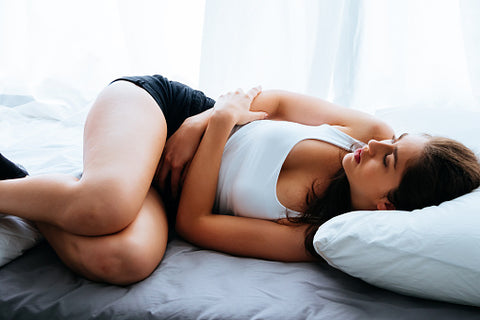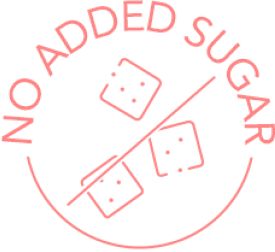I’m Sorry...it’s just that I’m PMSing

The week before your period doesn’t make sense until you realize it’s the week before your period.
Believe us you’re not alone... In fact, 3 out of 4 women suffer PMS at some point in their lives.
In simple words, PMS or Premenstrual Syndrome is a combination of physical, emotional, and behavioral symptoms that women suffer before and during their periods.
It can start a week or two before periods and can last for 3-4 days after you start menstruating.
Even though it's a widely common phenomenon that women experience, it is still not normalized.
Don’t worry, we’ll break it down for you.
Starting with what causes PMS, the changes in the levels of two hormones — estrogen and progesterone — have a massive role to play.

In addition to this, researchers have also identified a few potential contributors, namely:
- Reproductive hormones
- Genetic factors
- Stress
- Insufficient amounts of serotonin
- Improper diet
The next in the line is the common symptoms associated with PMS. Most women generally suffer from at least 3-4 of these:
- Sadness
- Mood Swings
- Crankiness
- Anxiety
- Tiredness
- Tender Breasts
- Food cravings
- Headaches
- Backache
- Headache
- Bloating
- Muscle Pain
- Abdominal Bloating
- Constipation/Diarrhea
- Alcohol intolerance
Now, the question you might have is
Should you worry about PMSing?
No, you shouldn’t. PMS is a common condition that occurs during menstruation.
Usually, women suffer mild symptoms. However, sometimes the pain can be unsettling.
If you fall in the next category, here is a list of non-medical treatments that you can try to relieve your PMS symptoms:
Diet
Besides having a balanced diet, add water-based food like celery, berries, and cucumber to keep your body hydrated. Lower your salt intake to ease bloating.
Avoid fried and packaged food because they are rich in salt and sodium which cause water retention and lead to bloating.

Exercise
Exercise can help you release feel-good hormones and can improve your mood. Yoga and breathing exercises can help in easing out the pain.
During the lighter flow days, you can also do moderate-intensity aerobics like walking and light jogging.

Dietary and Herbal Supplements
Instead of relying on antidepressants and painkillers, try herbal supplements to relieve your symptoms. Calcium, magnesium, Vitamin B6, Vitamin E, and Chasteberry are some common supplements that are known to ease the symptoms.

Avoid Caffeine
Not only does caffeine cause dehydration but its vasoconstrictive effects reduces the size of blood vessels in the uterus and slow down the flow of blood, worsening the PMS symptoms.
Opt for healthier alternatives like matcha tea, black coffee, ginger tea, etc.

Massage
Find a balance between cold and hot therapy to alleviate pain. Place heating pads at the lower abdomen to relieve cramps or on your shoulders to relax your muscles.

Share Your Thoughts
Instead of curling into a ball or bingeing on food and Netflix neglecting your feelings, talk about what you’re feeling. Get in touch with your friends.

When should you consult a doctor?
Some women experience an extreme form of PMS. It is termed PMDD or Premenstrual Dysphoric Disorder.
Here are a few signs to decide your visit to the doctor:
- Your PMS symptoms don't disappear after the first few days of menstruation.
- PMS symptoms interrupt your daily routine.
- Home treatment shows no effect.
The bottom line is PMS is a natural condition that a majority of women suffer from. The best way to deal with it is to understand it and make healthier choices.






